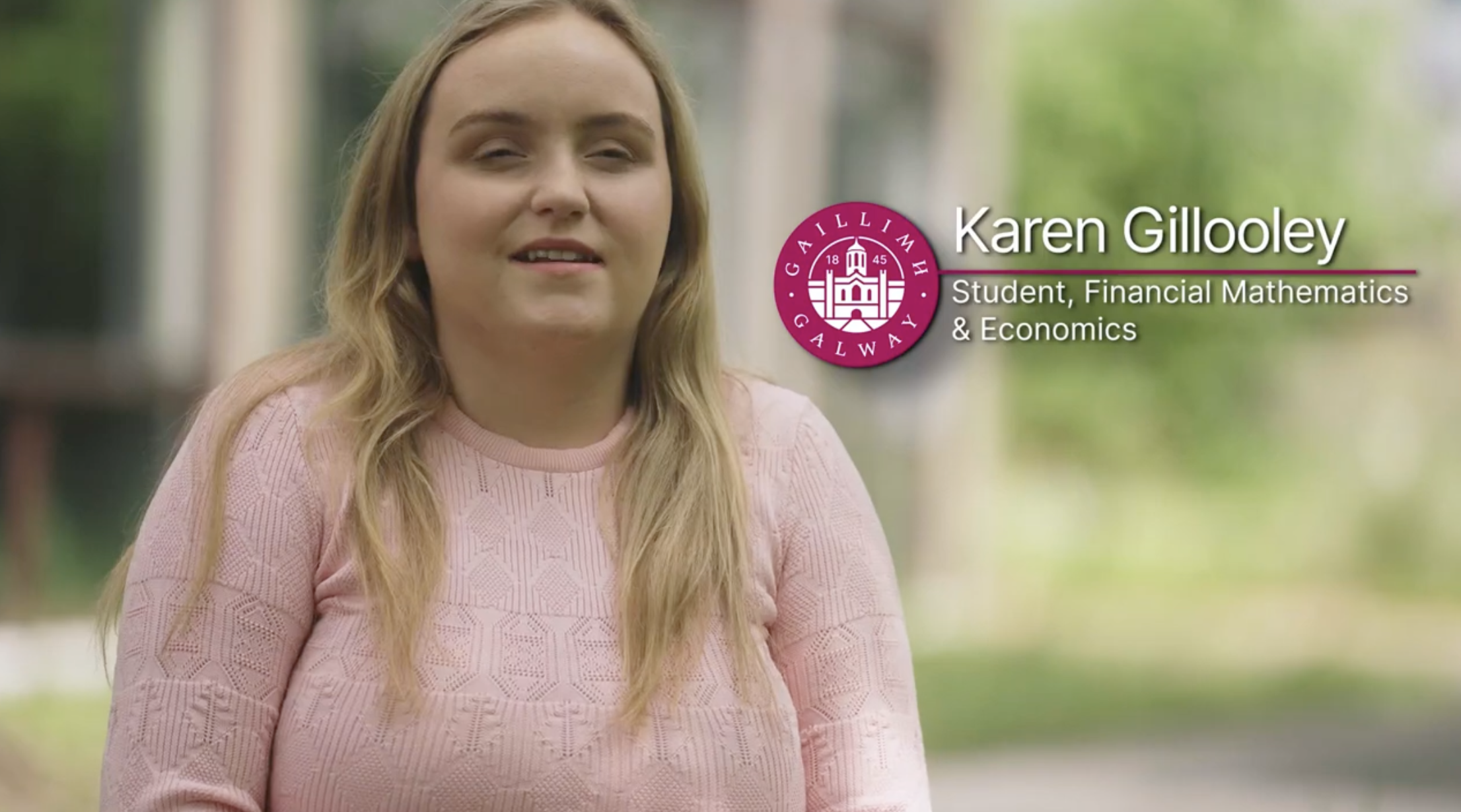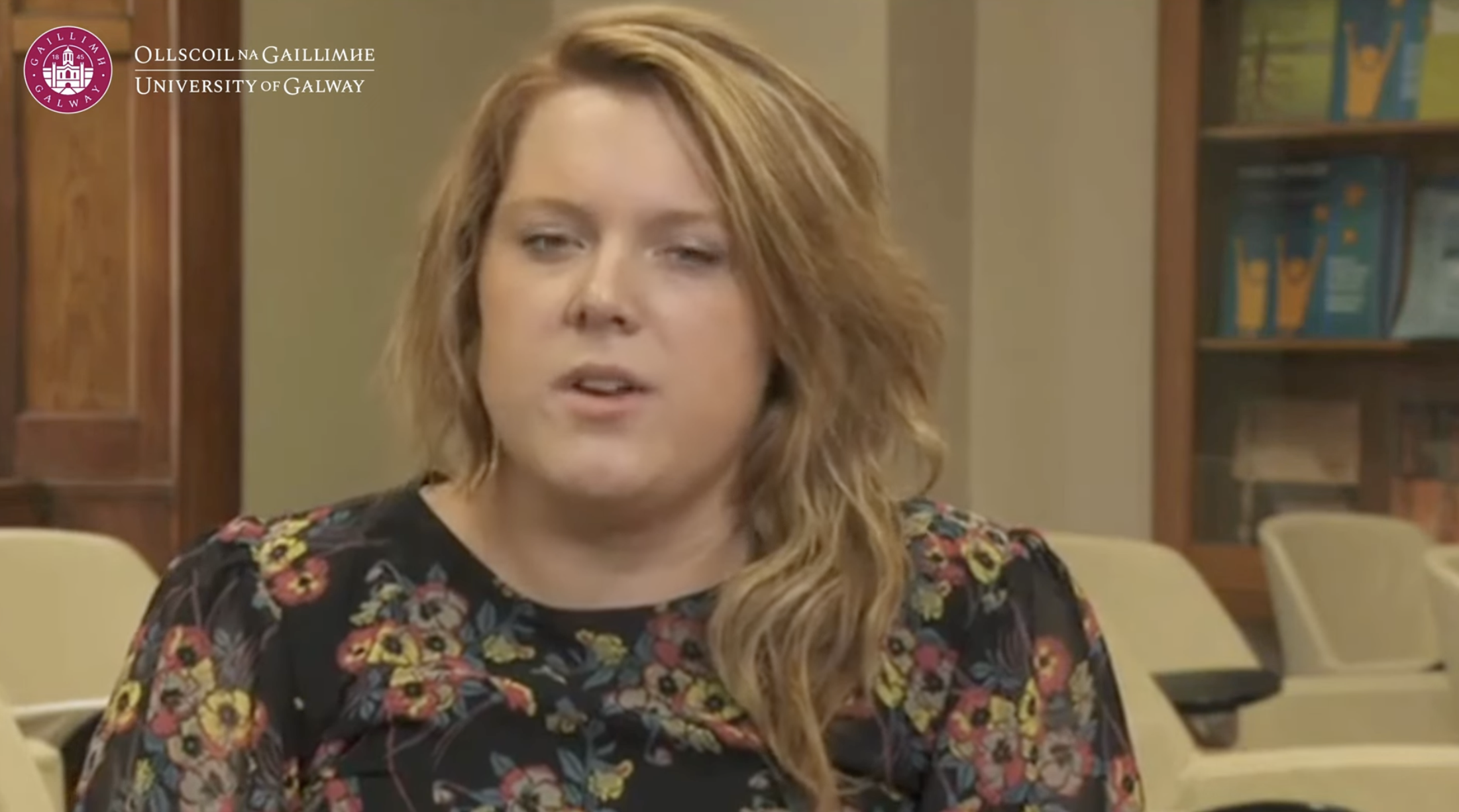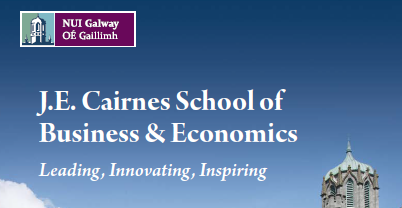-
Courses

Courses
Choosing a course is one of the most important decisions you'll ever make! View our courses and see what our students and lecturers have to say about the courses you are interested in at the links below.
-
University Life

University Life
Each year more than 4,000 choose University of Galway as their University of choice. Find out what life at University of Galway is all about here.
-
About University of Galway

About University of Galway
Since 1845, University of Galway has been sharing the highest quality teaching and research with Ireland and the world. Find out what makes our University so special – from our distinguished history to the latest news and campus developments.
-
Colleges & Schools

Colleges & Schools
University of Galway has earned international recognition as a research-led university with a commitment to top quality teaching across a range of key areas of expertise.
-
Research & Innovation

Research & Innovation
University of Galway’s vibrant research community take on some of the most pressing challenges of our times.
-
Business & Industry

Guiding Breakthrough Research at University of Galway
We explore and facilitate commercial opportunities for the research community at University of Galway, as well as facilitating industry partnership.
-
Alumni & Friends

Alumni & Friends
There are 128,000 University of Galway alumni worldwide. Stay connected to your alumni community! Join our social networks and update your details online.
-
Community Engagement

Community Engagement
At University of Galway, we believe that the best learning takes place when you apply what you learn in a real world context. That's why many of our courses include work placements or community projects.
Bachelor of Science Financial Mathematics and Economics
Course Overview
The BSc in Financial Mathematics and Economics (BSc in FME) programme is a four-year degree programme consisting of courses in mathematics, economics, statistics/probability, applied mathematics, accounting and business finance, and computer science. The programme’s aim is to equip students with expertise in quantitative subjects, with a particular focus on financial economics, actuarial mathematics and statistics. There is a high demand from financial institutions for well-qualified students with quantitative skills, and in an expanding market, highly numerate professionals are being sought, particularly in the areas of insurance, investment and finance. Typically in such employment, you would be predicting the long-term financial consequences of current and past decisions, taking account of various risk factors, and designing solutions to problems that involve financial risk or uncertainty.
The degree should appeal to people who enjoy mathematics and are interested in studying economics and other subjects in the financial area. (Please note that you do not have to study economics for the Leaving Certificate to be admitted to this course.) This degree has an advantage over other programmes, including specialised actuarial programmes, as it is broad and suits students not yet ready to specialise. The course is administered jointly by the College of Science and Engineering and the College of Business, Public Policy and Law. The entry requirements of either college may be applied, according to whichever is more advantageous to the applicant.
Applications and Selections
Who Teaches this Course
Requirements and Assessment
Key Facts
Entry Requirements
Additional Requirements
Recognition of Prior Learning (RPL)
Duration
4 years
Next start date
September 2025
A Level Grades (2024)
universityofgalway.ie/alevels
Average intake
50
QQI/FET FETAC Entry Routes
Closing Date
NFQ level
Mode of study
ECTS weighting
Award
CAO
GY309
Course code
Course Outline
YEAR ONE
•Mathematics
• Computer Science
• Economics
• Mathematics of Finance
• Statistical Methods and Probability Models
• Mathematical Methods I
• Financial Accounting
YEAR TWO
• Differential Forms
• Intermediate Macroeconomics
• Random Variables
• Mathematical Methods I
• Intermediate Microeconomics
• Linear Algebra
• Introduction to Financial Economics
• Programming for Science and Finance
• Discrete Mathematics
• Mathematical Methods 11
• Statistical Inference
• Complex Analysis
YEAR THREE
ASSIGNED WORK PLACEMENT OPTION
•Applied Regression Models
• Groups
• Microeconomics and Public Policy
• Actuarial Mathematics - Cash flow models
• Money and Banking
• Metric Spaces
• Economics of Financial Markets
• Macroeconomics and Public Policy
• Non-Linear Systems
• Business Finance 2
• Mathematical Modelling
• Topology
YEAR FOUR
• Actuarial Mathematics - Life Contingencies II
• Numerical Analysis
• Measure Theory
• Final Year Project
• Actuarial Mathematics - Cash flow models
• Derivatives and Risk Management
• Economics electives
• Networks
• Statistical Modelling
• Differential Equations with Financial Derivative
See course outline for GY309 Financial Mathematics and Economic here
[an error occurred while processing this directive]
Further Education
Honours graduates can pursue higher degrees in a range of related disciplines, including mathematics, actuarial science, financial economics, financial mathematics, applied mathematics, statistics and economics. Graduates have been accepted on to leading postgraduate programmes both in Ireland and in prestigious universities overseas, including the University of Cambridge, Warwick University and the University of California, Berkeley, USA. Graduates can choose to become trainee actuaries and finish the professional exams while working or complete a Masters or Higher Diploma programme in Actuarial Science before starting as a trainee actuary. To become a qualified actuary, you must satisfy the professional education and work experience requirements of the Institute and Faculty of Actuaries (IFoA), based in the UK. The Society of Actuaries in Ireland is responsible for the professional conduct of actuaries in Ireland but is not an examining body.
This programme can provide up to 3 actuarial exam exemptions, namely:
Actuarial Mathematics (CM1), Actuarial Statistics (CS1), Business Economics (CB2).
Actuarial Exemptions - Financial Maths & EconomicsActuarial_exemption_information_June_2023
Why Choose This Course?
Career Opportunities
There are excellent employment opportunities for graduates. The demand from employers for well-qualified students with knowledge of how financial markets operate and how to use quantitative techniques to make informed investment decisions is substantial. The employment prospects from this degree programme are excellent, with challenging and financially rewarding opportunities in many different areas. These include:
Financial services – opportunities for graduates exist right across the financial services sector, in investment, corporate and private banking, in currency trading, in credit risk and in management of hedge funds. Some of the world’s leading financial firms have hired our graduates, including Goldman Sachs, JP Morgan, Merrill Lynch and Credit Suisse.
Actuarial profession– graduates can embark on a career as an actuary, working primarily in pensions, life & genernal insurance and investments. Some of our graduates in recent years have gone on to complete postgraduate actuarial studies and other graduates have gone directly to positions as trainee actuaries."
This programme can provide up to 3 actuarial exam exemptions, namely: Actuarial Mathematics (CM1), Actuarial Statistics (CS1), Business Economics (CB2).
Actuarial_exemption_information_June_2023
Other areas – opportunities for our graduates exist in government departments and other public sector bodies, where they play key roles on issues affecting the national economy. In recent years, graduates have been hired by the Department of Finance, the Central Bank of Ireland, the Bank of England and the National Treasury Management Agency (NTMA). Moreover, because of their strong numeracy skills, graduates have also secured employment in a wide variety of different areas, for example, as economists, in accountancy, tax and law, in management consultancy and even as a sports odds compiler.
Who’s Suited to This Course
Learning Outcomes
Transferable Skills Employers Value
Work Placement
Study Abroad
Related Student Organisations
Course Fees
Fees: EU
Fees: Tuition
Fees: Student Contribution
Fees: Student levy
Fees: Non EU
EU Fees are comprised of Tuition + Student Contribution Charge + Student Levy* €140. *Payable by all students and is not covered by SUSI. Further detail here.
For 25/26 entrants, where the course duration is greater than 1 year, there is an inflationary increase approved of 3.4% per annum for continuing years fees**.
**Excludes Full-Time EU Undergraduate fees. These are fixed and do not change.
Find out More
Dr. Nina Snigireva
Programme Director
Financial Mathematics and Economics programme
E nina.snigireva@universityofgalway.ie
What Our Students Say

Mark Berry | BSc (Financial Mathematics and Economics)
...In school I always favoured the numerical subjects and had an interest in finance, so this course was great as it offered a mix of mathematical and financial subjects. The broad, multidisciplinary nature of the course supplied me with ideal numerical and analytical skills to pursue a wide range of job opportunities...










.png)












